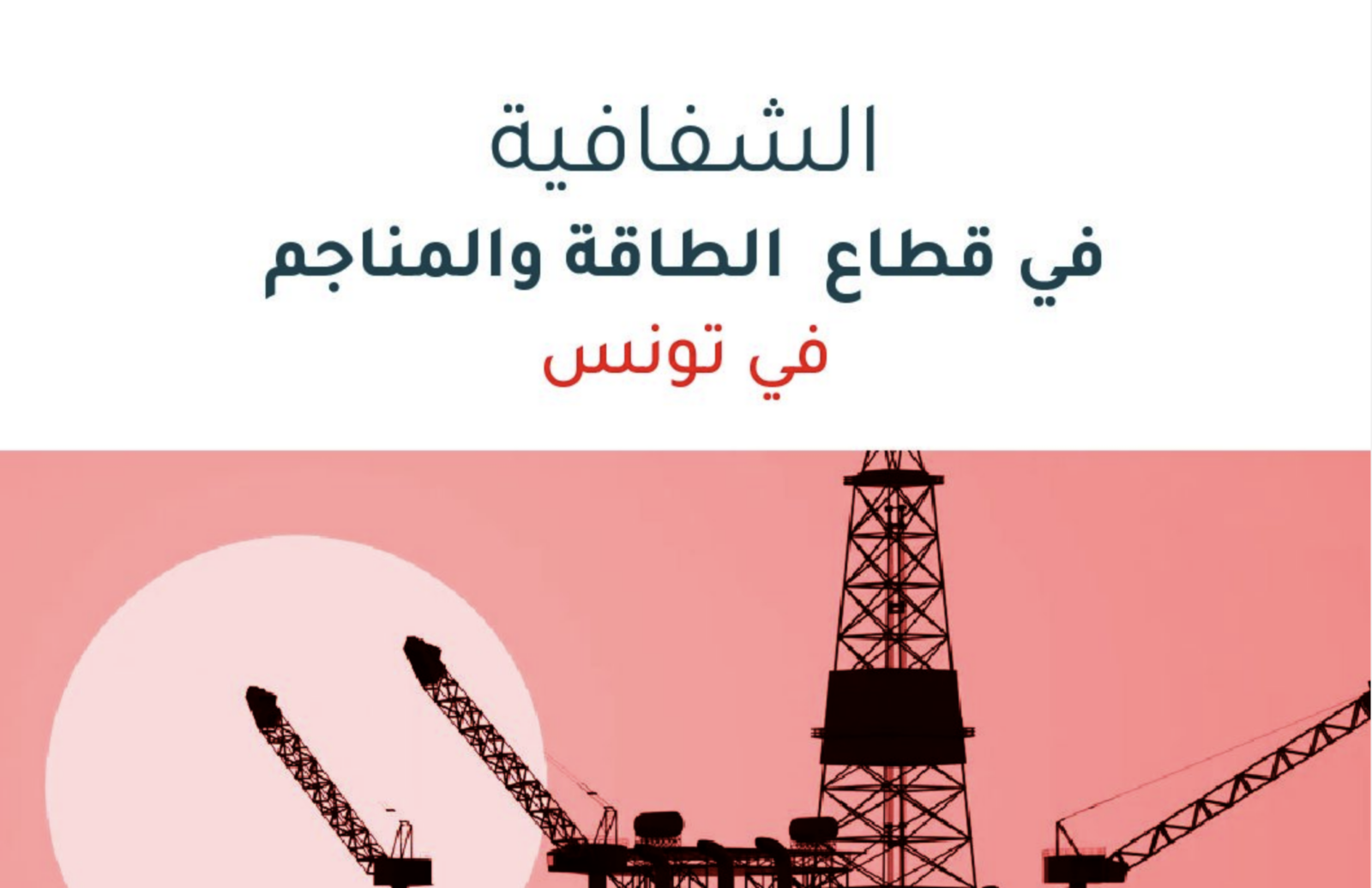Tunisia has made good progress in transparency in its energy and mining sector, especially since 2016, the year when most oil and gas contracts and their addendums on exploration and prospecting were published. The publication came in implementation of the commitments of the Open Government Partnership (OGP) 2nd National Action Plan, via the energy and mines Ministry’s open data portal, which also included key data related to oil and gas production.
Despite the progress made, Tunisia did not sustain the push for transparency in the energy and mining sector. In fact, the published data did not cover the full stages of the natural resource exploitation value chain, from exploration to the extraction and management of resources.
Licensing and Exploration Stage:
- In terms of the submission, review, evaluation and award of bids, as well as selection factors and criteria, the scattered and multiple laws and regulations, whether published or not, make bidding procedures difficult and unfair. The process is made even less transparent by the non-disclosure of relevant documents and decisions, such as the minutes of the Hydrocarbons Advisory Committee.
- Companies and investors are unable to access the technical data of the data room located at the headquarters of the Tunisian Company for Petroleum Activities (Entreprise tunisienne d’activités pétrolières—ETAP), while the latter invests in this area.
- There is no full and reasonably accurate data for identifying vacant acreage, based on the likelihood of finding oil and gas and the results of completed operations.
Data Release Post-Licensing and Concessions Stage:
- Such data are useful to investors, but do not meet the needs of civil society and the public to perform their monitoring role. In fact, the Government does not publish a list of the bidding companies, the reasons why bids are accepted or rejected, or environmental impact assessments (EIAs) of oil and gas prospecting and exploitation operations, despite the fact that they are legal obligations stipulated by the Hydrocarbon Code. There is no EIA plan either.
- There are no social impact assessments (SIAs). In fact, they are not required by the Hydrocarbon Code before applying for a license.
- Although the National Commercial Register (Registre national des entreprises—RNE) has existed since 2018, allowing the disclosure of the companies’ beneficial ownership, including companies operating in the extractive industries, the data relating to the latter are neither accurate nor up-to-date, which produces conflicts of interest and tax evasion.
- The owners’ earnings and equity are not declared due to the shuttering, since July 2021, of the National Anti-Corruption Authority (L’Instance nationale de la lutte contre la corruption—INLUCC), where such declarations were made.
Exploitation Stage:
Tunisia ranks first in the world in terms of the number of published oil and gas contracts according to the www.resourcecontracts.org portal.
Still, numerous oil and gas sector data and facts are missing, including the many unpublished production concessions agreements, not to mention the inadequate release of production data for a large number of concessions. In fact, production data has not been updated since December 2021, daily production is not released, and economic feasibility studies (EFSs) are not published because ETAP does not participate in the concessions.
Failure to publish detailed revenues constitutes the main obstacle to Tunisia’s joining the Extractive Industries Transparency Initiative (EITI), which requires such disclosures, considering them a crucial element of the Initiative. Tunisia, however, publishes data on oil and gas sector revenues as an aggregate rather than for each company separately.
Recommendations
- Complete the disclosure and publishing of remaining contracts and documents.
- Include the publishing of data, documents and reports in the laws and regulations governing the extractive industries sector.
- Publish the royalty payments and profit taxes collected by the State in detail, for each concession separately.
- To ensure regular and effective monitoring, it is recommended to create an electronic system for petroleum tax collection auditing, especially for oil and gas companies.
- Join the EITI as a standard for guiding reforms and covering the full value chain of oil and gas exploitation.











